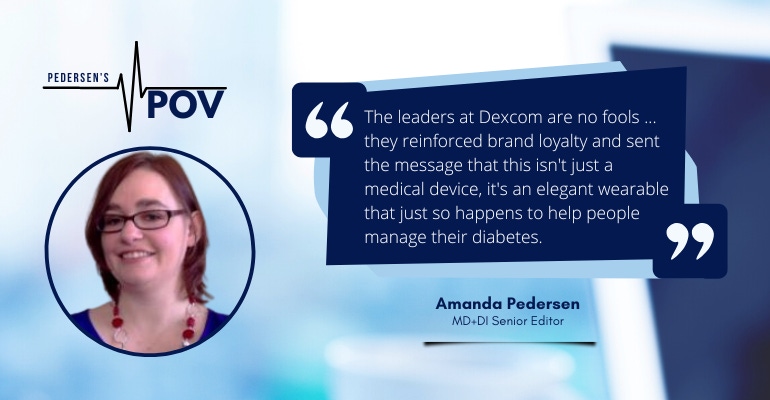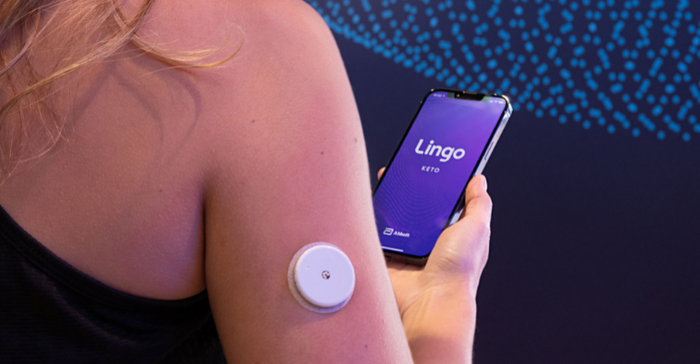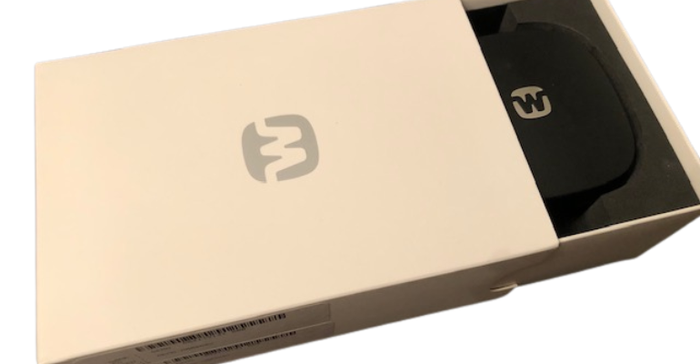Pedersen's POV: Apple Clones Are Among Us
This week in Pedersen's POV, our senior editor ponders a new trend in medtech.
October 10, 2022

Watching Dexcom's G7 global streaming launch event last week felt a lot like watching the latest Apple product announcement. It was a high-quality production that seemed to have a very intentional consumer-tech feel.
I reached out to Dexcom to find out about the thought process behind doing this type of launch event, and to ask if that Apple-like feel of the event was indeed intentional.
"Dexcom believes people with diabetes, their caregivers, and healthcare providers deserve the best technology to empower them to take control of their diabetes. We wanted to make the diabetes community feel seen, heard, and valued by providing them with this unique streaming launch event, and we’re always looking at new, best-in-class ways to celebrate the diabetes community," Dexcom said.
The company didn't explicitly comment on my observation about the event having an Apple feel to it, but that's okay. Whether the similarities were intentional or not, it was a smart business move on Dexcom's part to launch the device in the way that it did. Treating the event like a consumer electronics launch supports the message that the latest continuous glucose monitoring (CGM) system fits as seamlessly into a customer's life as a consumer electronic wearable would. That was, after all, the thought process that went into the design of the Dexcom G7.
"The best consumer products are simple, approachable, usable, and useful," Apurv Kamath, senior VP of product and global marketing at Dexcom, said during the event. "Just because we're building a product to help manage diabetes doesn't mean the experience should feel clinical."
It also shows foresight on Dexcom's part as Abbott, one of the company's largest competitors, plans to eventually roll out a line of consumer biowearables based on its CGM technology. Abbott's Lingo platform is being designed to allow consumers to track key biomarkers in the body – such as glucose, ketones, lactate, and alcohol – to help better understand your general health and wellness.

Abbott's Lingo portfolio of products are under development and are not intended for medical use. Lingo products are not for sale in the United States. Products shown above are for illustrative purposes only.
Considering how attached we all are to our phones and other consumer electronic devices these days, it's not difficult to imagine a world where having a CGM sensor on your arm is as common as wearing a Fitbit or an Apple Watch. And how awesome would that be for people living with diabetes who depend on a CGM system to help them manage their disease?
Dexcom's G7 event was certainly not the first time I noticed a medtech company mimicking Apple. Last year, my husband had the opportunity to demo the Widex Moment hearing aids, and the first thing we noticed when the product arrived was the sleek, minimalist white box designed to easily slide open, providing a unique sensory experience, just like opening the latest iPhone.

As David Schweitzer, a principal design engineer at Oliver Design noted in an article published by Packaging Digest, Apple changed the paradigm of consumer packaging, and that has significantly influenced medical packaging.
"Apple was one of the first companies to thoughtfully consider the way a product was presented to the consumer. And in my opinion, it is thanks to Apple and others like them that people began to demand more from their packaging," Schweitzer wrote. "Consumers started to wonder why earbuds could be presented in such an easy and intuitive way, while the packaging for their prescription drugs offered little to no benefit."
He goes on to write about the many times throughout his career when he's met with a big-name pharma company, and someone brings in an Apple box.
"With the shift in focus to consumer-friendly packaging, the medical industry was pressed to rethink its packaging, and how it could reinforce critical messaging including the proper administration of the product," he wrote.
That connection between packaging and messaging easily translates to other aspects of product marketing, and it all ties in with brand loyalty. When my husband opened the Widex Moment hearing aids, that sleek, minimalist Apple-like packaging planted the idea in his brain that he was opening an elegant, high-tech product. He didn't feel like he was opening a medical device at all.
The same goes for the Dexcom G7 launch event last week. The leaders at Dexcom are no fools – by offering their existing and potential customers a unique, consumer viewing experience, they reinforced brand loyalty and sent the message that this isn't just a medical device, it's an elegant wearable technology that just so happens to help people manage their diabetes.
Pedersen's POV publishes every Monday. If there’s a medtech topic you would like her to consider, email [email protected] (please put “POV” in the subject line).
About the Author(s)
You May Also Like



.png?width=300&auto=webp&quality=80&disable=upscale)
